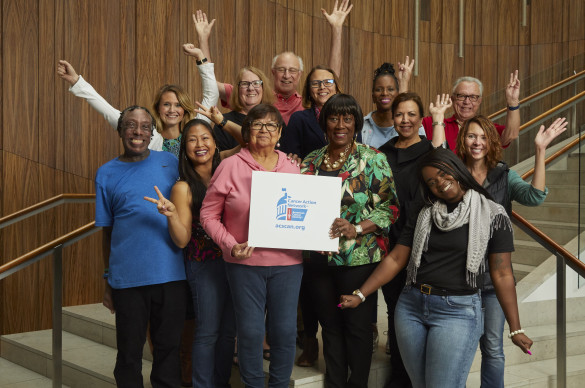David A. Paterson
Governor
State of New York
State Capitol
Albany, N.Y. 12224
Dear Gov. Paterson:
The American Cancer Society believes that overweight and obesity contribute to 14 to 20 percent of all cancer-related deaths in the United States. This ranks second only to tobacco as a risk for cancer mortality.
As many as 11,000 New Yorkers die every year because of cancers related to obesity and lack of physical activity.
That is why we have supported many of your policy proposals to help our residents live healthier lives, by improving their health food options, at school, while eating out, and at home, with access to full grocery stores. We support, as well, efforts to improve and encourage physical activity opportunities.
The American Cancer Society also believes that consumption of sugar-sweetened beverages, such as sodas or sports drinks, plays a particularly important role in our society’s growing obesity problem. Consumption of sugar-sweetened beverages contributes to excess caloric intake in part because individuals do not reduce their calorie intake from other foods to compensate for the extra calories they are consuming from these beverages. Additionally, sugar-sweetened beverages have become one of the largest single source of calories in both adult and youth diets. While ultimately the goal is for individuals to have an energy balance of calories in and calories out, reducing consumption of sugar-sweetened beverages should be an integral part of a comprehensive public health strategy for reducing the obesity epidemic.
You have proposed increasing the excise tax on sugar-sweetened beverages to reduce consumption, building upon the extremely positive experience with tobacco excise taxes.
There is an emerging body of research on the potential effects of a sugar-sweetened beverage tax on consumption, but until a significantly higher tax than the current ones is in effect in at least a few jurisdictions, the research on the impact of a higher tax on consumption is not yet conclusive. That lack of conclusive evidence precludes the American Cancer Society from unconditionally supporting your proposal for a one cent per ounce excise tax on sugar-sweetened beverages.
However, given the extraordinary importance of the obesity problem, the link to cancer mortality, and the enormous role played by sugar-sweetened beverages, we believe it is important to conduct further policy research and evaluation of community-wide efforts to reduce consumption of these beverages. To that end, the American Cancer Society can support an excise tax proposal that:
--Clearly applies to all sugar-sweetened beverages,
--Earmarks resulting revenue for public health programs,
--Includes a thorough evaluation component, and
--Assures the tax is applied at the point of sale so consumers are faced with a sugar-related higher price that has the potential to discourage consumption.
We will be happy to work with Commissioner Daines and the Legislature to assure that the proposal now being considered will meet these criteria.
As you have pointed out on many occasions, it is critical for the state’s physical and fiscal health that we begin to turn around the obesity growth curve. We agree, and the American Cancer Society looks forward to partnering with the State of New York in accomplishing that goal as soon as possible.
Sincerely,
Peter Slocum
Vice President of Advocacy
